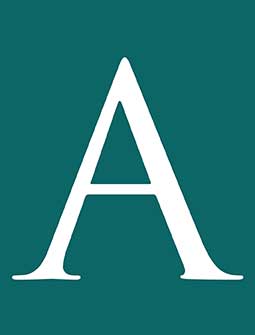
The IRS issued final regulations (T.D. 9907) on the treatment of payments made to charitable organizations in return for consideration, including in return for state and local tax credits. The regulations finalize proposed regulations issued in December 2019 and also incorporate two earlier pieces of IRS guidance, Rev. Proc. 2019-12 and Notice 2019-12, as well as addressing other issues. The final regulations provide further guidance on the issue of states’ and taxpayers’ attempts to avoid the $10,000 cap on state and local tax deductions by making charitable contributions instead (see also earlier final regulations in T.D. 9864). The IRS says it received over 40 comments on the proposed regulations; the final regulations adopt the proposed regulations with some clarifications.
The new final regulations update the current Sec. 162 regulations to reflect statutory changes on how Sec. 162 applies when taxpayers make a payment to a Sec. 170(c) charitable organization for business purposes. They also provide safe harbors under Sec. 162 for payments made by businesses to Sec. 170(c) organizations and under Sec. 164 for payments made to a Sec. 170(c) organization by individual taxpayers who itemize and receive (or expect to receive) a state or local tax credit in return for the payment. Finally, they update the regulations to reflect past guidance and case law on the application of the quid pro quo principle under Sec. 170 to benefits received (or expected to be received) by a donor from a third party.
The preamble to the final regulations notes that it retains the proposed amendments to Regs. Sec. 1.162-15(a), which clarify that a taxpayer’s payment or transfer to a Sec. 170(c) entity may constitute an allowable deduction as a trade or business expense under Sec. 162, rather than a charitable contribution. The final regulations also retain the examples demonstrating the application of this rule with minor clarifications.
In addition, the final regulations retain the Sec. 162 safe harbors to provide certainty about the treatment of payments business entities make to an entity described in Sec. 170(c). The final regulations provide Sec. 162 safe harbors for payments a business entity that is a C corporation or specified passthrough entity makes to or for the use of an organization described in Sec. 170(c) if the business entity receives or expects to receive state or local tax credits in return. These safe harbors allow an eligible business entity to treat the portion of the payment that is equal to the amount of the credit received or expected to be received as meeting the requirements of a Sec. 162 ordinary and necessary business expense. The safe harbors apply only to payments of cash and cash equivalents, not if the credit received or expected to be received reduces a state or local income tax.
The final regulations retain the Sec. 164 safe harbor under which an individual who itemizes deductions and who makes a payment to a Sec. 170(c) entity in exchange for a state or local tax credit is permitted to treat it as a payment of state or local tax under Sec. 164 the portion of the payment for which a charitable contribution deduction under Sec. 170 is or will be disallowed under Regs. Sec. 1.170A-1(h)(3). This treatment is allowed in the tax year in which the payment is made, but only to the extent that the resulting credit is applied under state or local law to offset the individual’s state or local tax liability for that tax year or the preceding tax year.
Any unused credit permitted to be carried forward may be treated as a payment of state or local tax under Sec. 164 in the tax year or years for which the carryover credit is applied in accordance with state or local law. The safe harbor for individuals applies only to payments of cash and cash equivalents.
The IRS explained that because the final regulations are not intended to permit a taxpayer to avoid the Sec. 164(b)(6) limitation, they provide that any payment treated as a state or local tax under the safe harbor in Regs. Sec. 1.164-3(j) is subject to the Sec. 164(b)(6) limitation. In addition, under the final regulations, an individual who relies on the Regs. Sec. 1.164-3(j) safe harbor to deduct qualifying payments may not also deduct the same payments under any other Code section.
As discussed in the preamble, the final regulations retain the amendments to the Sec. 170 regulations to reflect past guidance and case law regarding the application of the Sec. 170 quid pro quo principle to a donor who receives or expects to receive benefits from a third party. The final regulations clarify that the quid pro quo principle applies regardless of whether the party providing the quid pro quo is the donee or a third party. To reflect existing law, the final regulations amend the rules in Regs. Sec. 1.170A-1(h) that address a donor’s payments in exchange for consideration.
Finally, the regulations make certain clarifying changes to the definitions in Regs. Sec. 1.170A-1(h).
The amendments under Regs. Sec. 1.162-15 apply to payments or transfers made on or after Dec. 17, 2019, but taxpayers may apply them to payments or transfers on or after Jan. 1, 2018. Regs. Sec. 1.164-3(j) applies to payments made to Sec. 170(c) entities on or after June 11, 2019, but taxpayers may choose to apply it to payments made to Sec. 170(c) entities after Aug. 27, 2018. The definitions provided in Regs. Sec. 1.170A-1(h)(4) apply to amounts paid or property transferred on or after Dec. 17, 2019.
— Sally P. Schreiber, J.D., (Sally.Schreiber@aicpa-cima.com) is a Tax Adviser senior editor
Leave a Reply